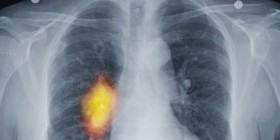India’s increasingly shrill anti-beef lobby is likely to get support from unexpected quarters this week with the World Health Organisation (WHO) putting processed red meat in the same category of cancer-causing substances as arsenic, plutonium and tobacco.
While processed staples such as bacon, sausages and salami will find place among things “carcinogenic to humans” because of their confirmed link with bowel cancer, unprocessed red meat — all fresh cuts of beef, pork, lamb, goat, etc — is a rung below in the “probably carcinogenic to humans” list along with lead and diesel fumes. Processed meat is more damning because the preserving and curing methods used raise levels of cancer-causing chemicals.
The causative link to cancer was established in 2007 when the World Cancer Research Fund reviewed 14 studies and concluded that red and processed meats were “convincing causes of colorectal cancer.” The evidence is less convincing for other cancers, though some studies have also associated regular meat-eating with stomach cancer.
Heart trouble
Apart from the artery-choking saturated fat and cholesterol – which, incidentally, is only found in fats from animal sources and not in nuts and legumes — in meats that clog up the arteries, a nutrient found in red meat has also been shown to trigger a series of reactions in the gut microbes that contribute to the development of heart disease. According to a study published in the journal Nature Medicine, gut bacteria turn L-carnitine found in red meat into a compound called trimethylamine-N-oxide (TMAO). In studies in mice, TMAO has been shown to clog up the inside lining of the arteries (atherosclerosis) that can completely stop or severely restrict blood flow, leading to heart attacks.
Two studies that included more than 120,000 men and women showed that people who ate the most red meat died younger, mostly because of heart disease and cancer. After 28 years, nearly 24,000 people had died from heart disease and cancer, showed data reviewed by the researchers at the Harvard School of Public Health. They found that an additional daily serving – fresh cuts of meat, the size of a deck of cards, or two slices of bacon or cold cuts — raised risk of death by 13%. The risk increased to 20 if the serving was processed, such as bacon, cold cuts or sausages, they reported in the Archives of Internal Medicine.
Iron in the meal
Despite being high in saturated fats and cholesterol that raises weight, block arteries and cause heart disease, red meat in small amounts was long considered a critical part of a balanced diet. It lowers appetite by increasing satiety and is a good source of protein, iron and Vitamin B12 needed for healthy nerves and red blood cells, and zinc, which keeps the immune system working optimally.
Meat is packed with amino acids, which the body cannot make on its own and needs to build protein. And though both amino acids and protein are found in plant sources, they are found in smaller quantities. For example, you get 25 gm of protein from 150 calories worth of red meat and 600 calories worth of shelled peanuts.
Haem iron – from animal sources such as red meat, chicken, liver, shrimp, oysters and eggs – is better absorbed, with 15-35% being utilised by the body as compared to the 2-10% from iron found in fortified cereals, legumes, leafy vegetables, dried peas, beans, dried apricots and raisins.
Iron-deficiency anaemia lowers the blood’s ability to carry oxygen to vital organs. In people otherwise healthy, even mild anaemia can cause tiredness, headache, dizziness, fatigue and lack of concentration. Acute anaemia puts pressure on the heart to compensate for the oxygen deficiency, causing palpitations, chest pain and heart failure.
Fit substitute
The Harvard studies show substituting meat with equivalent servings of more healthful protein sources, such as fish, poultry, nuts, legumes, low-fat dairy products, and whole grains give you an edge, with benefits ranging from 7% for substituting fish, 14% for poultry, and 19% for nuts. Does this mean you have to give up eating meat altogether? No. Including a lot of plant fibres in the diet brings down heart and cancer risk to the same levels as vegetarians, showed results of the EPIC trial in 2013 that followed half a million Europeans for 12 years. Eating cold potatoes – with butyrylated resistant starch produced when potatoes are cooked and left to cool — with red meats protects against cancer by lowering DNA damage to the gut cells. It’s best to have red meat as a treat instead of a staple. It’s not worth the risks when healthier and as tasty substitute are available.






Leave a reply